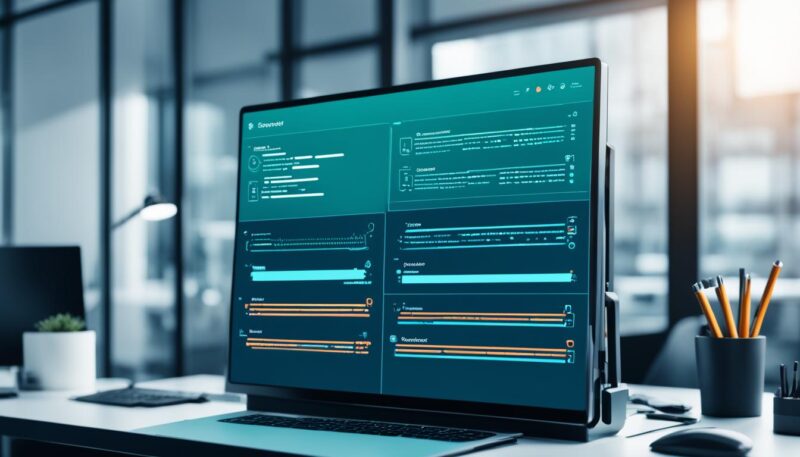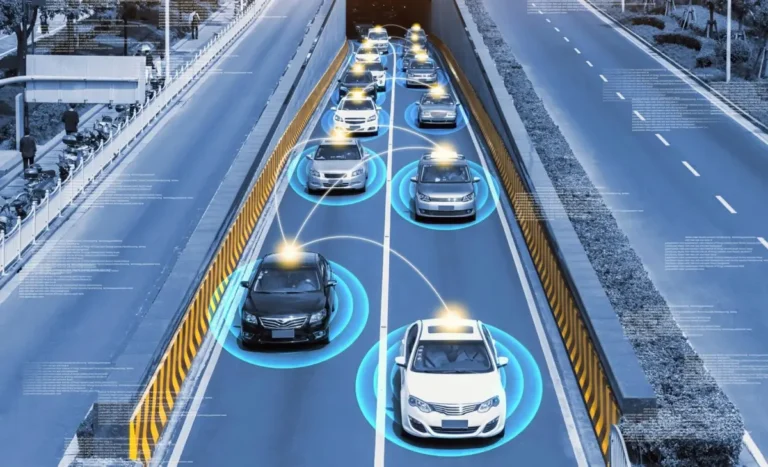Every industry has its moments of existential dread, where professionals find themselves asking, “Could a machine do my job better?” This is an anxious reality for many software engineers today as the rapid rise of AI technology evokes both wonder and fear. It’s easy to imagine a world where lines of code are effortlessly generated by AI tools, disrupting the daily grind of developers. However, the reality is far more nuanced and less grim.
At the Ministry of Programming, AI isn’t viewed as a threat but as a powerful assistant. Here, hundreds of developers leverage AI to augment their work, using AI tools for developers to streamline complex tasks rather than replace their roles. Indeed, AI in software engineering is revolutionizing productivity, but it’s important to understand that current AI, while impressive, is not autonomous. It’s more like an advanced autocomplete, excellent at aiding but not substituting the uniquely human elements of creativity and problem-solving.
So, as we stand on the precipice of unprecedented technology advancement, the question isn’t really “Will AI replace software engineers?” but “How will software engineers and AI work together to build a better future?” The narrative is shifting; rather than fearing replacement, professionals should embrace the evolution towards an enriched, collaborative ecosystem powered by both human ingenuity and AI capabilities.
Key Takeaways
- AI acts as an augmentation tool for software engineers, not a replacement.
- Generative AI tools lower barriers to coding and fuel workforce expansion.
- Human oversight is crucial for maintaining code quality and functionality.
- The technology advancement in AI encourages new business creation and job opportunities.
- Prominent industry voices, like Gergely Orosz, believe AI will enhance, not replace, programming roles.
Understanding AI Capabilities and Limitations
The impact of AI on coding is a topic of immense interest, particularly as misconceptions often arise regarding AI capabilities. While generative AI’s potential seems vast, it remains essential to highlight both its strengths and limitations in the programming landscape.
The Reality of Generative AI
Generative AI tools, such as OpenAI’s GPT-3, provide innovative solutions for code generation. However, these tools often operate like advanced autocomplete software. They assist developers in generating code snippets quickly, boosting productivity. Yet, it is crucial to note the AI limitations, particularly the phenomena known as ‘hallucinations’, where the AI generates incorrect or nonsensical code. Such errors necessitate expert human oversight to identify and correct mistakes.
Current Tools and Human Oversight
The current landscape of machine learning in programming relies heavily on human oversight. Developers need to provide precise prompts for AI to produce useful code. This requirement underscores the need for a strong foundation in programming knowledge to ensure the tools are used effectively. Additionally, despite the advancements in AI capabilities, human intervention is indispensable to troubleshoot and fine-tune the AI-generated output.
Projections for AI in 2024
Looking ahead to 2024, projections indicate that AI will further integrate into the software development process. This integration is not seen as a replacement for human coders but as an enhancement. By lowering entry barriers and fostering innovation, AI can democratize coding skills and increase overall efficiency within development teams. The impact of AI on coding will thus be characterized by complementary dynamics rather than competitive displacement.
AI’s Role as an Assistant, Not a Replacement
Ultimately, the role of AI in software engineering is evolving towards being a collaborative assistant to human developers. The limitations of AI ensure that it cannot supplant the creativity, problem-solving abilities, and nuanced decision-making that human engineers bring to the table. Therefore, the future of AI in programming is poised to enhance human ingenuity and productivity, anchoring its status as a valuable tool in the developer’s toolkit.
Will AI Replace Software Engineers?
The integration of AI into the realm of software development has sparked widespread discussions and curiosity. Industry experts and seasoned professionals at companies like LeetCode, with founders boasting rich backgrounds from industry giants such as Amazon and Google, see AI as a powerful augmentative tool rather than a direct competitor to human software engineers.
Real-World Examples of AI in Software Development
In practical terms, AI’s role in software development is as a productivity enhancer. AI-driven tools can assist in generating code snippets, automating repetitive tasks, and debugging, thus allowing software engineers to focus on more complex and creative aspects of their work. For instance, GitHub’s Copilot leverages the OpenAI Codex to turn natural language prompts into coding suggestions, significantly accelerating the coding process. These advancements signify the practical implementation of automation in tech, augmenting human capabilities rather than replacing them.

The Persistence of Human Creativity and Problem-Solving
Despite AI’s impressive capabilities, it falls short in areas requiring human attributes like creativity, contextual understanding, and problem-solving. Software development is not merely about writing lines of code; it includes innovating solutions to novel challenges, a domain where AI currently lacks the necessary human intuition. Moreover, the collaborative nature of most software engineering roles requires interpersonal skills and ethical judgment, traits that AI and automation in tech cannot replicate.
- Human creativity in developing unique solutions
- Collaborative efforts driving project success
- Critical ethical decision-making
The Future of Software Development Jobs
As we look towards the software development future, the job market is not facing imminent disruption but transformation. Job roles are evolving, with an increasing demand for expertise in AI, machine learning, and data engineering. For example, projections by the U.S. Bureau of Labor Statistics highlight a 25% growth in software developer employment from 2022 to 2032. Additionally, the modern software engineer needs to maintain a continuous learning mindset, mastering new AI and programming skills to remain relevant.
- Increased demand for AI and machine learning specialists
- Emphasis on continuous learning and skill enhancement
- Opportunities in emerging tech fields
In light of these trends, it’s evident that while AI will transform certain aspects of the job, the essence of software development—the human creativity and problem-solving that drive innovation—will remain indispensable.
Conclusion
The long-standing question of whether AI will replace software engineers finds its answer in the increasing realization that AI is an augmentative tool, not a replacement. Across the industry, from cutting-edge startups to established tech giants like Google, AI is leveraged to enhance the productivity of human developers rather than diminish their value. AI’s capability to handle repetitive and data-intensive tasks converges with the unique human skills of creativity, empathy, and problem-solving, ensuring that software engineers remain indispensable.
The future of software jobs is not one of obsolescence but of transformation and growth. As we embrace the synergies between AI and human intelligence, it’s clear that software engineers equipped with a lifelong learning ethic will not only survive but thrive amidst AI advancements. Amid these software engineering trends, the demand for specialized roles continues to rise, emphasizing the importance of staying adept with emerging technologies.
Ultimately, AI and job automation underscore the necessity for professionals to be adaptive. By maintaining their edge in an ever-changing ecosystem, software engineers ensure their irreplaceability in designing and nurturing the technologies of the future. This transformative era offers a promising outlook for those willing to evolve and integrate AI into their skill set, celebrating the enduring spirit of innovation within the field.
Source Links
- https://medium.com/mop-developers/forget-the-hype-ai-isnt-taking-your-coding-job-9047f2d16171
- https://fortune.com/2024/07/30/ai-cannot-replace-software-engineers-or-threaten-their-careers/
- https://technical.ly/software-development/generative-ai-replace-software-developers/
Related Posts:
- The Truth About Trade Schools: Busting Myths and…
- AI-Powered Dating Apps - Will They Ever Replace…
- Will AI Replace Data Analysts? The Future of Data Science
- Selecting DevOps Engineers - Top Criteria for…
- Mapping the Modern World ─ The Technologies Behind…
- The Psychology Behind Risk-Taking ─ Why Some People…








